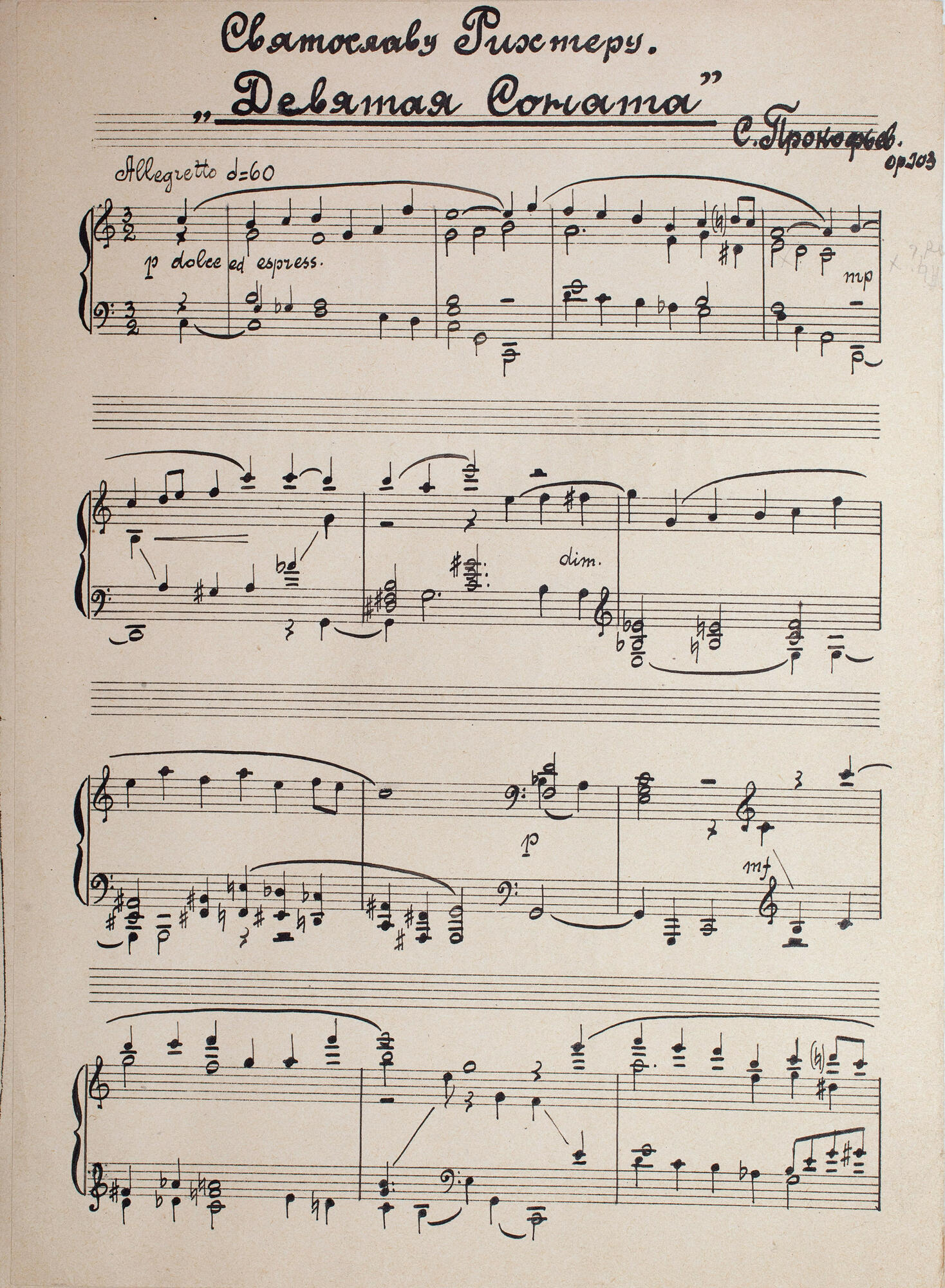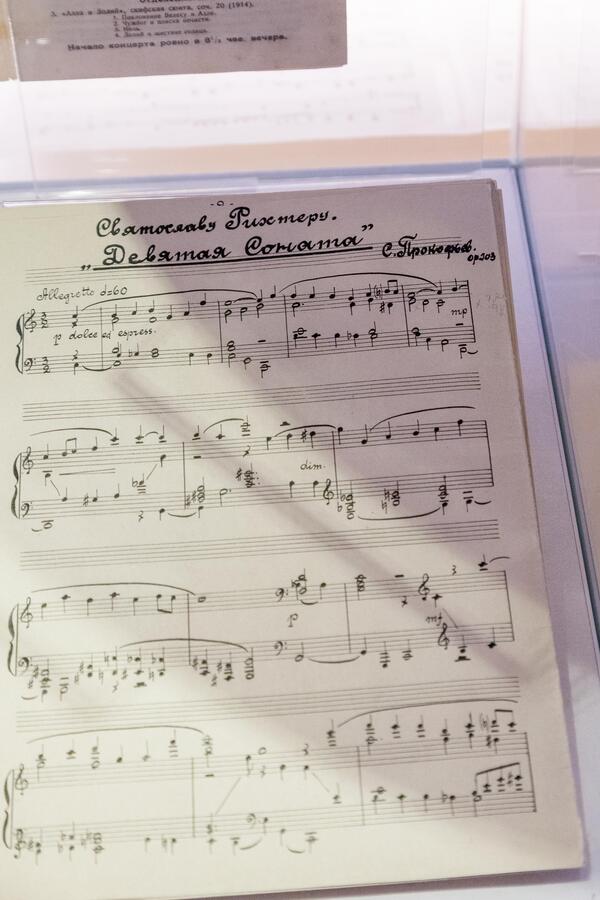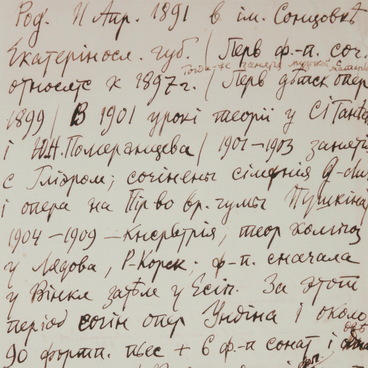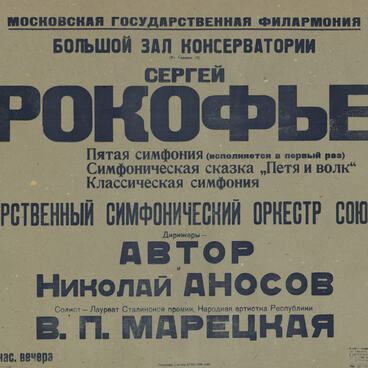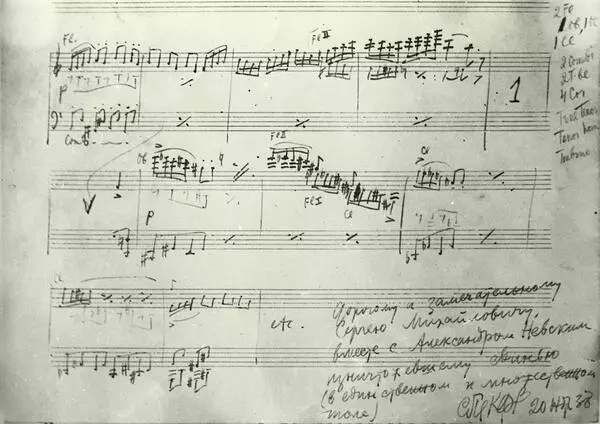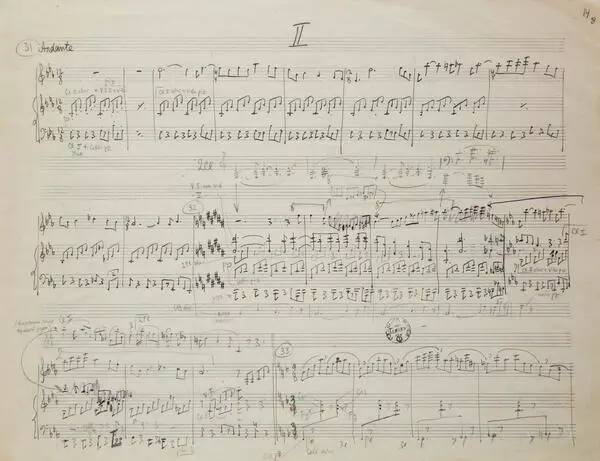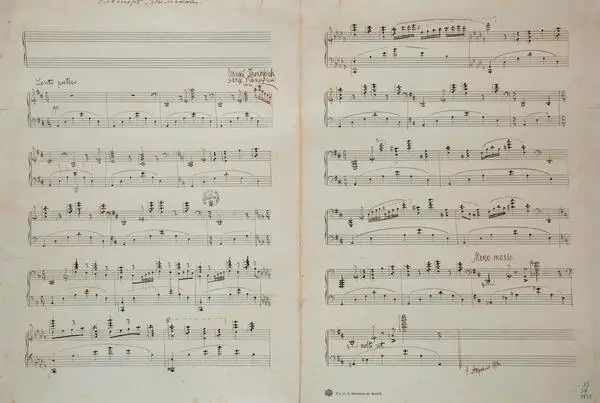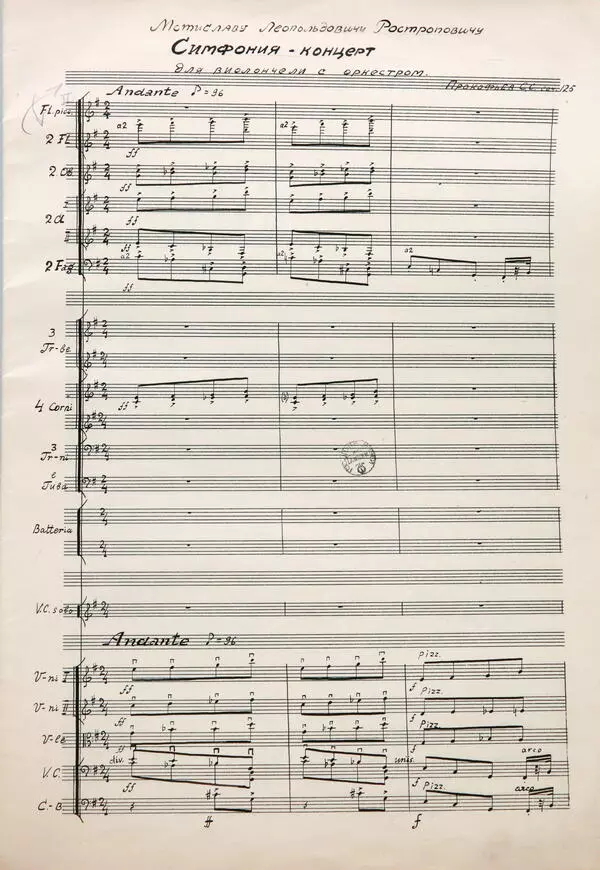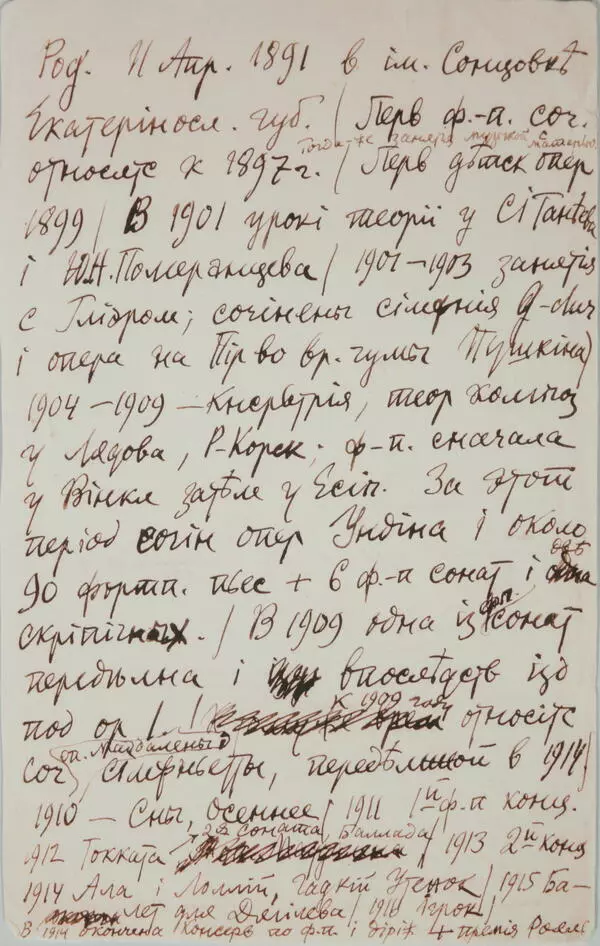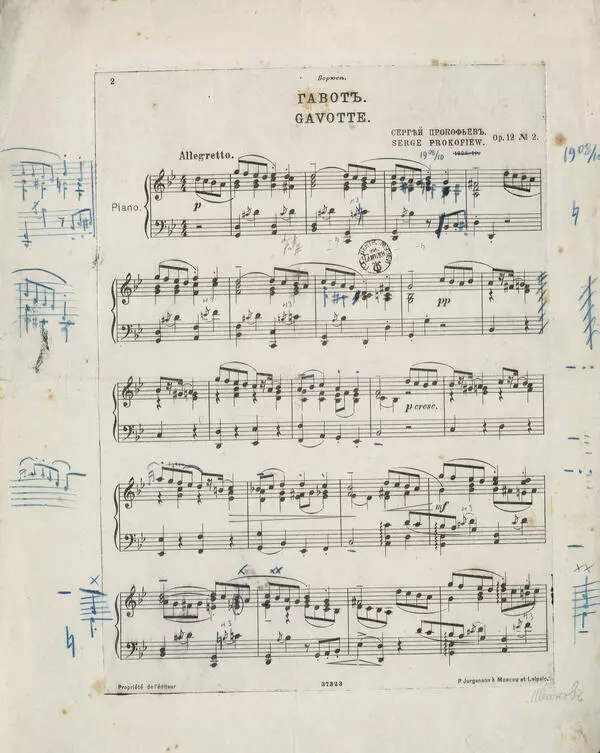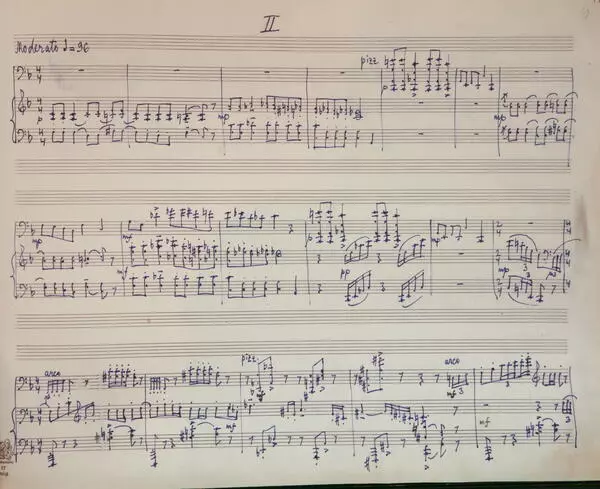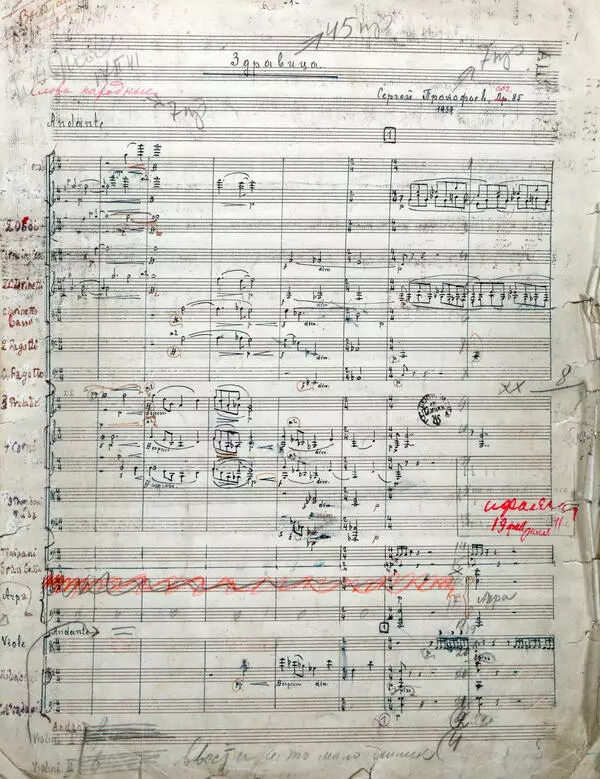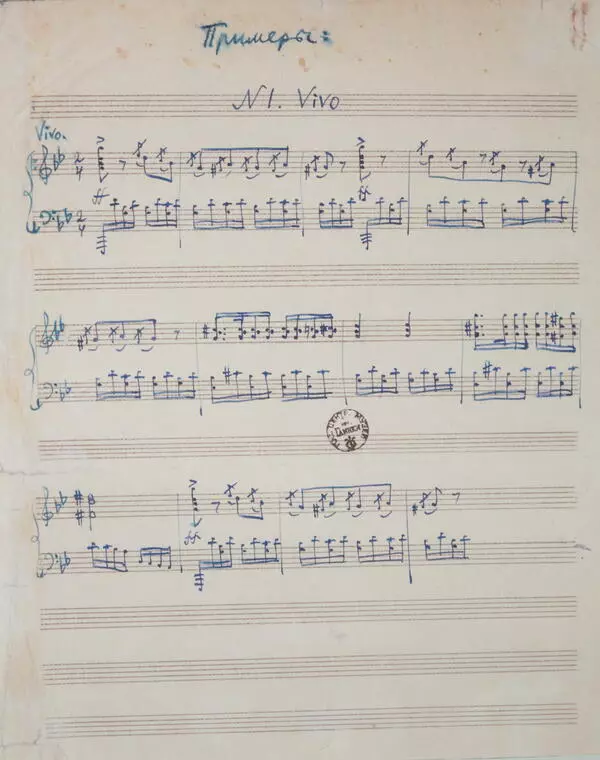Sergei Prokofiev composed Piano Sonata No. 9 in 1947 while living in his country house in Nikolina Gora.
On April 23, the composer celebrated his 56th birthday among his friends. One of the guests was the famous pianist Sviatoslav Richter. Although it was Prokofiev’s birthday, Richter was the one to receive the most valuable present: the composer showed him the drafts of his new sonata. Prokofiev told him, “This will be your sonata. But do not think it’s intended to create an effect. It’s not the sort of work to raise the roof of the Great Hall.” The sonata was dedicated to Richter.
Prokofiev finished the ninth sonata in the fall of the same year. It became his last piano composition. The sonata, like many other of Prokofiev’s later works, took the listeners by surprise: they had expected the usual strong dissonances but instead received a tender and soft lyrical composition. The Ninth Sonata was referred to as “an intimate sonata” and “a sonatina” (“a small sonata”). The famous French composer Francis Poulenc said, “I do not like the Ninth. I believe it is nothing like Prokofiev at all.” Even Richter himself at first considered it to be “simplistic”. Later, however, he changed his mind and admitted, “The more you listen to it, the more you come to love it and yield to its attraction — the more complete it comes to seem.”
Sviatoslav Richter became known as a virtuoso performer of Prokofiev’s piano compositions. He first heard Prokofiev’s music during the composer’s Soviet tour in 1927. At the time, the future great pianist was only 11 years old. At his first concert, Richter, a conservatory student, chose to play a piece by Prokofiev: on October 14, 1940, he gave a brilliant performance of the Sixth Sonata.
On April 23, the composer celebrated his 56th birthday among his friends. One of the guests was the famous pianist Sviatoslav Richter. Although it was Prokofiev’s birthday, Richter was the one to receive the most valuable present: the composer showed him the drafts of his new sonata. Prokofiev told him, “This will be your sonata. But do not think it’s intended to create an effect. It’s not the sort of work to raise the roof of the Great Hall.” The sonata was dedicated to Richter.
Prokofiev finished the ninth sonata in the fall of the same year. It became his last piano composition. The sonata, like many other of Prokofiev’s later works, took the listeners by surprise: they had expected the usual strong dissonances but instead received a tender and soft lyrical composition. The Ninth Sonata was referred to as “an intimate sonata” and “a sonatina” (“a small sonata”). The famous French composer Francis Poulenc said, “I do not like the Ninth. I believe it is nothing like Prokofiev at all.” Even Richter himself at first considered it to be “simplistic”. Later, however, he changed his mind and admitted, “The more you listen to it, the more you come to love it and yield to its attraction — the more complete it comes to seem.”
Sviatoslav Richter became known as a virtuoso performer of Prokofiev’s piano compositions. He first heard Prokofiev’s music during the composer’s Soviet tour in 1927. At the time, the future great pianist was only 11 years old. At his first concert, Richter, a conservatory student, chose to play a piece by Prokofiev: on October 14, 1940, he gave a brilliant performance of the Sixth Sonata.
